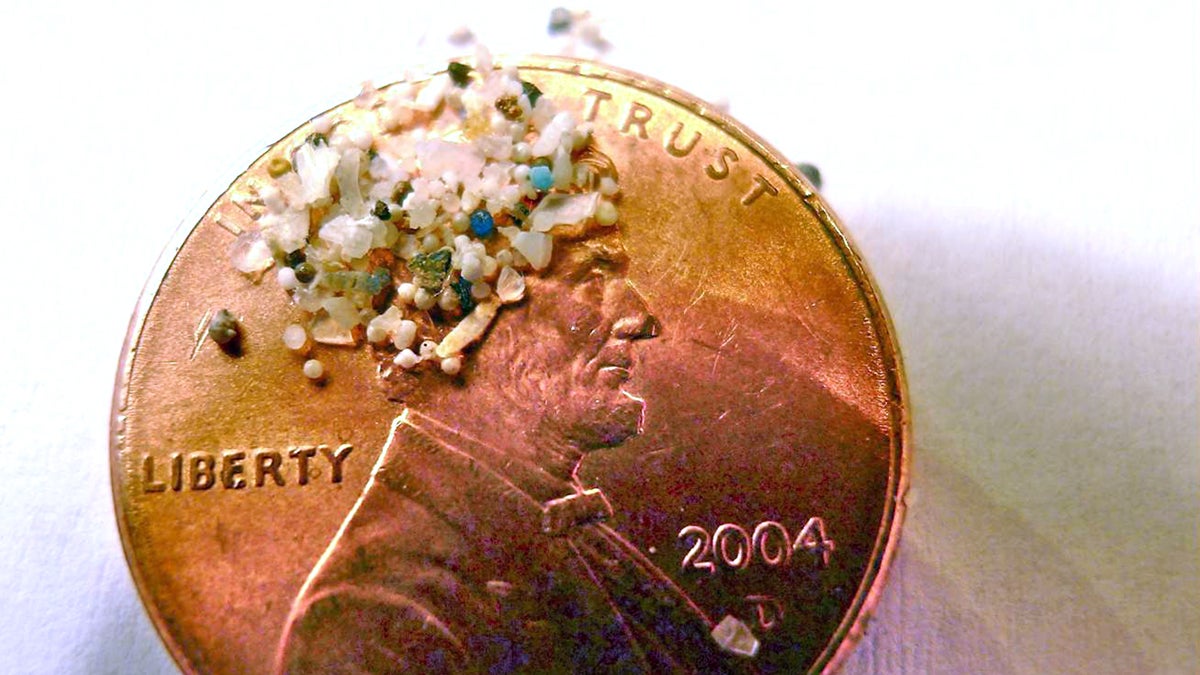NJ bans plastic ‘microbeads’ in personal care products

A sample of 'microbeads' collected in eastern Lake Erie is shown on the face of a penny. (AP Photo/Courtesy 5gyres.org, Carolyn Box, file)
The New Jersey legislature Monday enacted a law banning the production and sale of personal care products containing plastic microbeads.
The Garden State is the second in the nation after Illinois to pass similar legislation.
The tiny plastic beads are common in toothpaste and exfoliating face scrubs, but most wastewater-treatment systems can’t filter them out before they flow into rivers, lakes, and the ocean.
“Plastic is obviously something that does not decompose and it’s in the waterways, and it’s becoming more and more of a problem,” said New Jersey Assemblyman Patrick Diegnan, the primary sponsor of the bill in that chamber.
“I’m very happy that we’ve gotten total cooperation from the industry in banning it, so it’s a good news story up and down the line,” Diegnan said.
Stiv Wilson, director of the national environmental campaign “Ban the Bead,” said the microbeads both absorb and leach out toxins.
“When fish eat those beads, those toxins can transfer to their tissue, and that can magnify up the food chain,” Wilson said. “And humans are the top of that food chain.”
Some environmental groups, including Wilson’s and the New Jersey branch of the Sierra Club, don’t support the law because it outlaws only microbeads that are non-biodegradable.
“Everything is biodegradable on a geological timescale, so, technically, it’s a problematic word from a statutory perspective,” Wilson said.
Wilson argues banning only non-biodegradable microbeads will allow manufacturers to replace old types of plastic with newly developed biodegradable ones instead of natural materials. The law does not spell out how long plastic can legally remain in waterways before it breaks down.
Diegnan said if new types of plastic beads were developed new legislation would be introduced to address them.
According to the 5 Gyres Institute, an environmental group dedicated to decreasing plastic pollution, many large manufacturers have already agreed to phase out use of these beads, including L’Oreal, The Body Shop, Colgate-Palmolive, Unilever, Johnson & Johnson, and Procter & Gamble.
The New Jersey law will be phased in from 2018 to 2020 and enforced with a $500 fine.
That penalty was reduced from between $1,000 and $10,000 after a conditional veto from Gov. Chris Christie in December.
WHYY is your source for fact-based, in-depth journalism and information. As a nonprofit organization, we rely on financial support from readers like you. Please give today.

